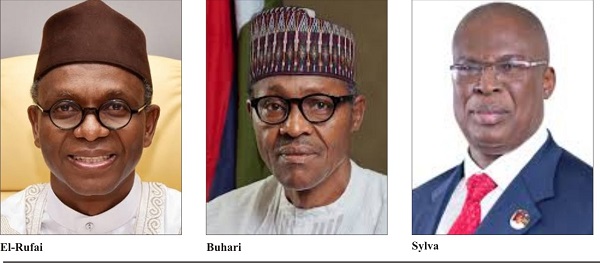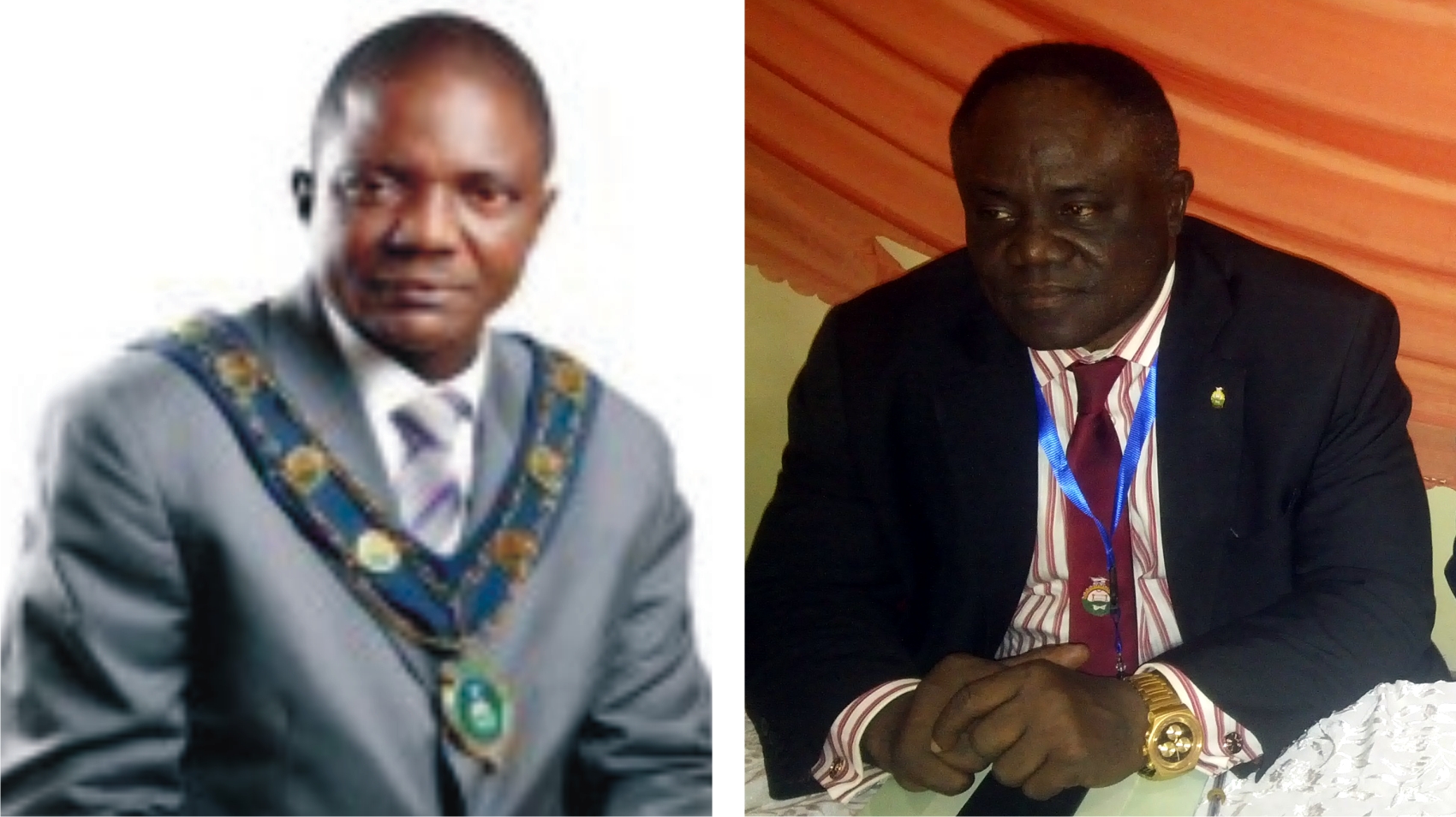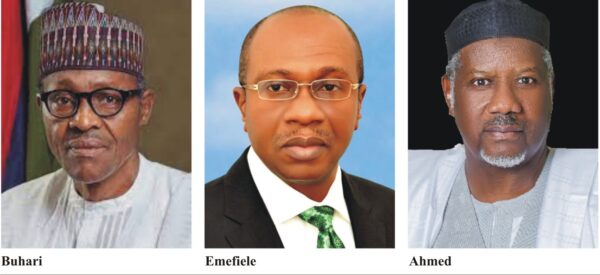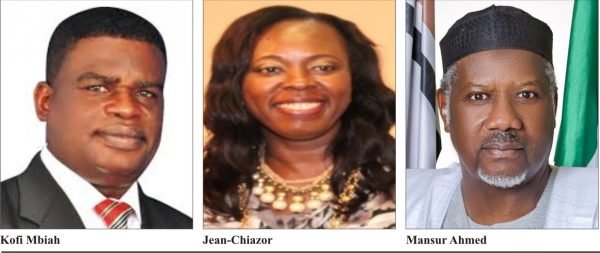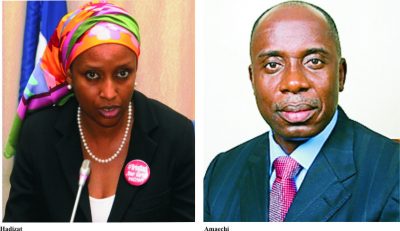Governors’ N380/Litre PMS Proposal And FG’s Rebuttal
Barely three months after the Federal Government turned down the recommendation by the Nigeria Governors’ Forum for an increase in the price of Premium Motor Spirit, popularly called petrol, the Federal Government again on Friday reiterated its stance, insisting that no decision on the adjustment of petrol price would be reached until the ongoing negotiations with the organised labour were concluded.
The Federal Government had first, on May 21, rejected the governors’ recommendation of shooting petrol price up to between N380 and N408.5 per litre and removing fuel subsidy.
The governors’ advice was based on the report of its committee chaired by the Kaduna State Governor, Mallam Nasir El-Rufai, seeking the full deregulation of the oil sector.
El-Rufai, while presenting the report of his committee to the NGF, explained that the current subsidy regime was unsustainable because smugglers and illegal markets in neighbouring African countries were the beneficiaries.
But the Minister of State for Petroleum Resources, Chief Timipre Sylva, in a statement, said the current petrol price of between N162 and N165 per litre would stay.
Sylva said the current price would be retained until the ongoing negotiations with the organised labour were concluded.
He said, “Once again, it has become necessary to assure Nigerians that despite the huge burden of under-recovery, the Federal Government is not in a hurry to increase the price of Premium Motor Spirit (petrol) to reflect current market realities.
“The current price of petrol will be retained in the month of June until the ongoing engagement with organised labour is concluded.
“This clarification becomes necessary in the light of recent reports regarding the resolution of the Nigeria Governors’ Forum to increase the pump price of petrol.”
Sylva also asked oil marketers not to engage in any activity that could jeopardise the “seamless” supply and distribution system of the commodity.
Despite the Federal Government’s initial stance, oil marketers under the aegis of Petroleum Products Retail Outlets Owners Association of Nigeria, on Friday, demanded an immediate end to fuel subsidy in line with the state governors’ recommendation of May.
The President of PETROAN, Dr Billy Gillis-Harry, insisted that oil marketers’ position that fuel subsidy should be stopped remained.
“When it (fuel subsidy) is stopped, the prices of petroleum products will be determined by market forces and this will create competition and lead to an increase in product availability,” he argued.
Gillis-Harry asked the Federal Government to listen to the governors’ call, especially now that the country was grappling with funding challenges.
However, the Federal Government reiterated its stance of May, stating that no decision on the adjustment of petrol price would be reached until the ongoing negotiations with the organised labour were concluded.
The Special Assistant on Media to the Minister of State for Petroleum Resources, Garba-Deen Muhammad, stated that he would re-echo the position of his boss, Sylva, who had earlier stated the position of the Federal Government on the matter.
Muhammad said people were free to make analyses and recommendations but stressed that the government’s position on petrol price had not changed.
He said, “The truth is that the key component for us to make the decision is basically for us to have a consensus with labour. So regardless of what the governors or anybody else is saying, labour is the key partner in this project.
“The negotiations with labour officials are ongoing. A decision will not be reached until the negotiations are over. So anybody can say what they want.”
He added, “The fact is that the labour represents the Nigerian people and the government is working with the Nigerian people. So it is a cardinal objective that the labour is carried along.”
Asked when the negotiations would possibly be concluded, Muhammad stated that the deadline was not completely dependent on the Federal Government.
“People can make their analyses and arrive at whatever proposals, but at the end of the day, a consensus has to be reached and in that consensus, the labour is a major voice and key partner,” he said.
Sylva had also during a recent briefing stated that the government would not discontinue petrol subsidy until its negotiations with the labour were over.
Although Sylva admitted that the burden of petrol subsidy was humongous, he insisted that negotiations with labour were a cardinal factor, stressing that the parties in the talks would soon resolve the concerns.
He said, “Of course, everybody would have their perspective, but from where I sit, I believe that subsidy removal is the best thing for Nigeria, not just for the industry. Discussions with the stakeholders are still ongoing.
“I’ll also bring to your attention that when the President assents to the Petroleum Industry Bill, subsidy issues will become a matter of law because it is already in the PIB that petroleum products will be sold at market-determined prices.”
The Petroleum Industry Bill was passed by the 9th National Assembly on July 1 after over a decade of legislative rigmarole.
The PIB contains five chapters, including governance and institutions, administration, host communities development, petroleum industry fiscal framework and miscellaneous provisions in 319 clauses and 8 schedules.
The National Assembly had in 2018 passed a harmonised version of the bill, but the President, Major General Muhammadu Buhari (retd), refused assent to it due to “legal and constitutional reasons.”
As of March 2021, fuel subsidy was costing the government up to N120bn per month based on the average daily consumption of around 60 million litres of petrol, according to the Group Managing Director of the Nigerian National Petroleum Corporation, Mele Kyari.
Also, according to an analysis by Reuters in April, subsidy cost around N10tn between 2006-2018 – more than the budget of any of the health, education or defence sector.
When contacted on Friday, the Spokesperson for the NGF, Abdulrazaque Bello-Barkindo, said, “I cannot comment on any issue that has not been collectively discussed and agreed upon by governors.”
Oil marketers back governors, renew call for fuel subsidy removal
Meanwhile, oil marketers including the Independent Petroleum Marketers Association of Nigeria on Friday backed the governors by calling for the complete removal of fuel subsidy.
The oil marketers stated that the rise in the landing cost of petrol had further highlighted the need to put a stop to petrol subsidy.
On Monday, The PUNCH reported that the landing cost of petrol imported into Nigeria had increased to a new high of N249.42 per litre on the back of high global crude oil prices.
The further rise in the landing cost of petrol means increased subsidy as the pump price of the product remains between N162 and N165 per litre.
Speaking with Saturday PUNCH, the National Public Relations Officer of IPMAN, Chief Chinedu Ukadike, insisted that petrol price should be determined by market forces.
He said, “In a deregulated sector where subsidy is completely removed, the forces of demand and supply drive the market. There are no institutions that determine the prices of petroleum products in such a deregulated sector or fix the price of the products.
“It is important that the forces of demand and supply should drive the prices of petroleum products in the country, whereby you can be able to buy products from your local refinery and go to your local filling station and sell it.”
Ukadike, however, said the subsidy should be removed in a way that it would not inflict hardship on the consumers.
“IPMAN supports the removal of subsidy, but this should be based on the provisions of the PIB so that marketers and consumers will not suffer hardship,” he said.
“Also, in doing this, we should ensure indigenous production of refined products,” Ukadike added.
The Group Managing Director, Rainoil Limited, Dr Gabriel Ogbechie, had also recently said the country might end up spending N2tn on petrol subsidy this year.
Ogbechie, who spoke at the Nigeria History Series of the Centre for Values in Leadership, lamented the lack of deregulation in the downstream sector.
He said, “The biggest elephant in the room today as far as the downstream is concerned is the failure, so to speak, of the government to deregulate the downstream. Fixing the prices at which petroleum products are sold, I believe, is very seriously harmful to this economy.
“Petrol is being sold for between N162 and N165 per litre. I believe that petrol is being subsidised with at least N100 per litre. If you look at the national consumption of anything between 60 and 80 million litres per day, we are spending about N8bn every day just to subsidise one product.”
Petrol subsidy, which was removed in March 2020, resurfaced earlier this year as the government has left the pump price of the product unchanged since last December despite the increase in global oil prices.
Just as the oil marketers, the state-owned oil company, NNPC, had repeatedly kicked against the continuation of subsidy, but stated that it was awaiting the outcome of negotiations between the government and labour.
Meanwhile, the Petroleum and Natural Gas Senior Staff Association of Nigeria has said it will not support the sale of the nation’s refineries.
But the union added that it would insist that the Federal Government divested its interests and allow the private sector to run them after their rehabilitation.
Speaking at a security awareness programme organised by the union in Abuja on Friday, the PENGASSAN National President, Festus Osifo, stated that his association would carry out advocacy for private sector management of the refineries.
He stated that the government could also adopt the public-private model adopted for the Nigeria Liquified Natural Gas Ltd, in which the Federal Government holds a minority 49 per cent shares against the 51 per cent by the private sector.
Osifo said, “PENGASSAN has never advocated that refineries be sold. What we have always advocated is that there should be a public-private partnership in such a way that the government will not be involved in the day-to-day running of the refineries.
“Why is the Federal Government not exploring the possibility of adopting the LNG model where the government holds a minority 49 percent while the private sector will take 51 per cent? That model has worked very well.”
Speaking on the ongoing rehabilitation of the refineries, he stated, “PENGASSAN welcomes the rehabilitation of the refineries. Our advocacy, once the rehabilitation work is complete, will be to call on the government to divest from the refineries and allow the private sector to run all of them.
“If we were to sell the refineries the way they are, they will be sold as scraps. If the government fixes the refineries and then divests, the money that government will get will be reasonable.”
He disclosed that while PENGASSAN had never opposed deregulation, it would not support a deregulation policy hinged on importation.
“That is why our position to support the rehabilitation of the refineries is justified. Nigeria will be ripe for full deregulation when the three refineries in the country are fully rehabilitated and are functioning under the efficient private sector.
“With the refineries coming on stream in the next few months and with the Dangote refinery coming on board as well, Nigeria will soon be self-sufficient in refined petroleum products,” Osifo said.
Osifo, a staff member of Total Nigeria Plc, argued that the Petroleum Industry Bill could be amended to reflect the five per cent demanded by the oil-producing communities.
He added, “For us in PENGASSAN, three per cent of operating expenditure is a good place to start. Let the bill be signed to end the uncertainty that shrouded the petroleum industry. The host communities can then seek an amendment.
“In my rough estimation obtained from the expenditure of the oil companies in the last one year, three per cent translates to about $45m (N18.5bn). The most important thing is how the fund will be administered.”
Culled from Punch.

